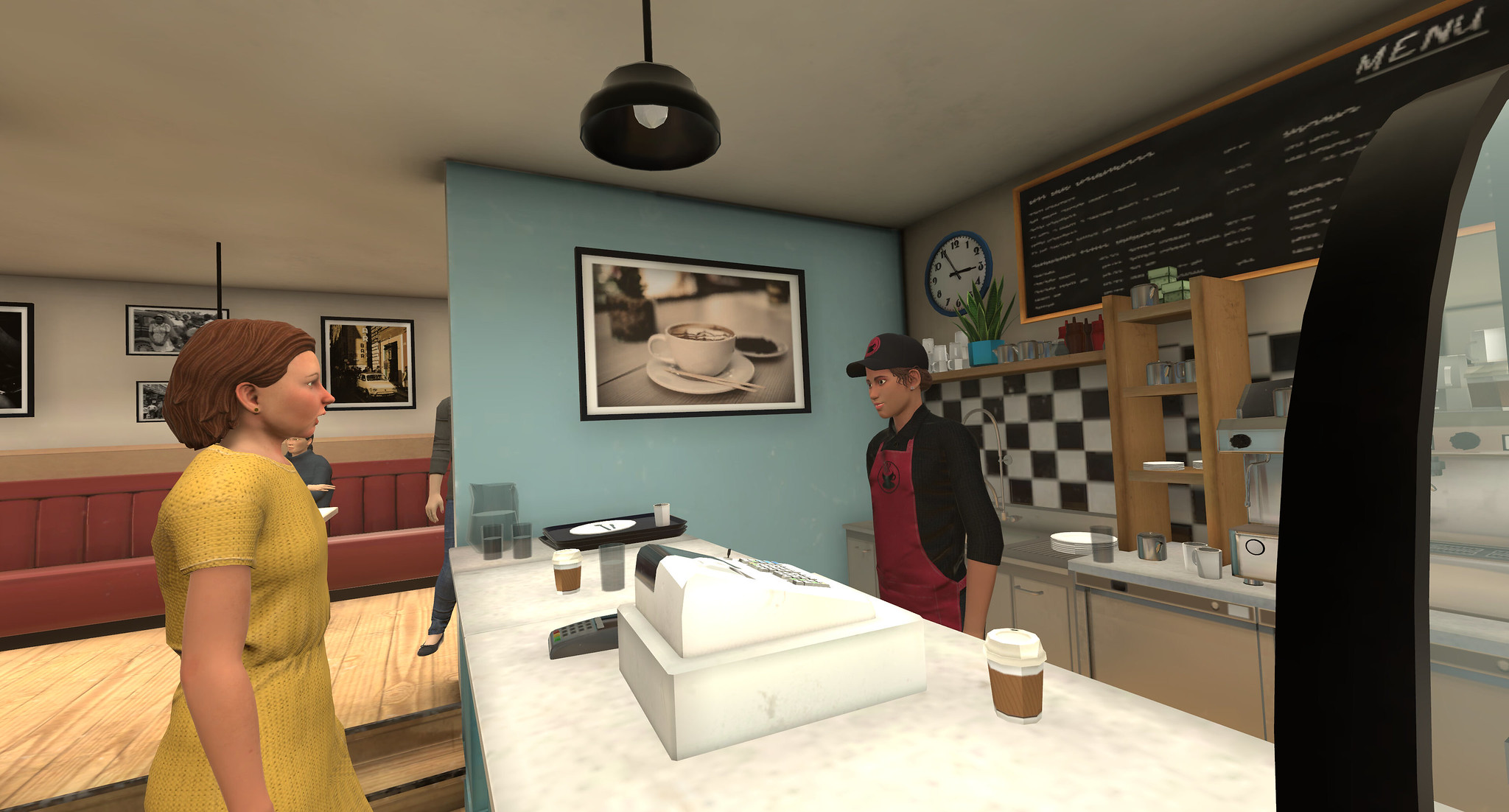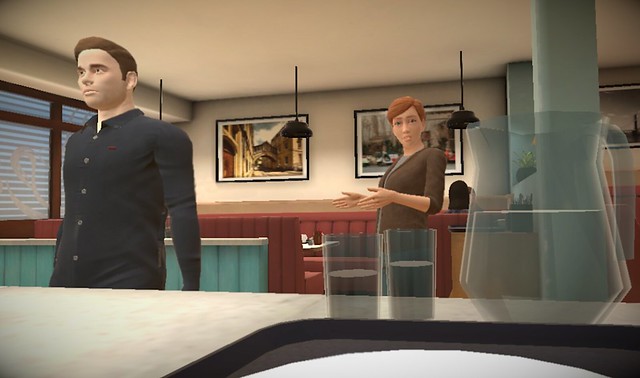
In a landmark development, psychological therapy has been automated in virtual reality. With the user guided by a virtual coach, there is no need for a real-life therapist, meaning the treatment can reach many more patients.

In the largest ever clinical trial of VR for mental health, published in The Lancet Psychiatry, the automated therapy was shown to work well for patients diagnosed with psychosis. The biggest benefits were experienced by those with the most challenging psychological problems.
The gameChange VR program was developed by a multi-partner team of university, health and industry experts including Oxford University spin-out: OxfordVR, creators of immersive technology for mental health. It is led by researchers from Oxford Health BRC, and targets a problem that is common in people diagnosed with psychosis: intense fears about being outside in everyday situations. For many patients, these fears develop into a severe agoraphobia that means they avoid leaving the home, severely disrupting relationships with family and friends, their education, and careers. gameChange is designed to treat this agoraphobia and help patients re-engage with day-to-day activities. It takes them from a housebound existence to life back in the world outside.
‘Virtual reality psychological therapy has come of age with gameChange. Over the past 25 years VR has been used in a small number of specialist mental healthcare clinics. It has supported in-person therapy delivered by a clinician. However, with gameChange, the therapy is built in, so it can be overseen by a range of staff. And it can be delivered in a variety of settings, including patients’ homes.
‘We are delighted that gameChange has produced excellent results for people with some of the most challenging mental health problems. Individuals who were largely housebound have got back outside. Using today’s affordable and easy-to-use consumer VR equipment, we think gameChange will lead a transformation in the digital provision of evidence-based psychological therapy, with deployment at scale for treatments that really work.’
Professor Daniel Freeman, Lead Researcher
gameChange led to significant reductions in the avoidance of everyday situations and in distress. However, the patients who benefitted most significantly were those who found it hardest to leave the house, and those with most psychiatric symptoms, such as severe anxiety, depression, delusions, and hallucinations. These patients experienced large benefits – for example, being able to undertake activities they had previously found unthinkable. These benefits were maintained at the six-month follow-up. Patient feedback showed that the treatment was very popular, with very high up-take rates.
Access to effective psychological therapies has been hampered by a shortage of clinicians. The problem is especially acute for people with severe mental health difficulties, such as psychosis. Patients are keen to try psychological interventions, but seldom receive them. Automated VR, with an in-built virtual coach, offers an innovative and effective way out of this impasse.
‘The gameChange program provides an engaging, active therapy. In a safe place, patients learn by doing, practising real-life activities such as buying a coffee or getting on a bus, which helps them develop the confidence to take on real-world challenges. Feedback from participants shows that people of all ages really enjoy the gameChange experience. They find it easy to use. And they are often amazed at the progress it has helped them to make.’
Dr Felicity Waite, clinical psychologist
‘This impressive research exemplifies what NIHR aims to achieve through its i4i funding scheme – truly transformational technology that can change people’s lives for the better. We’re really excited about the potential for gameChange to bring the benefits of psychological therapy to many more people in their own homes through the medium of virtual reality.’
Professor Mike Lewis, NIHR i4i Programme Director
Participants in the gameChange trial commented:
‘gameChange therapy changed my life. I’m more confident in myself. I’m more confident around other people. I see gameChange helping everyone. I think everyone’s going to be using it.’
‘If anyone has the opportunity to do the virtual reality treatment, I really would recommend it because it’s made a lot of difference to me. After seven years of illness, I do feel so much better. I’ve been able to make eye contact with people more, without feeling really anxious, I’ve been able to walk down a street without worrying about anyone walking towards me. I’m now able to go into a café. I feel much more confident about going on a bus. I just feel so much more confident than I was.’
This research is funded by a multimillion-pound award from the UK Department of Health: the inaugural National Institute for Health Research (NIHR) i4i (Invention for Innovation) Mental Health Challenge Award. It was also supported by the NIHR Oxford Health Biomedical Research Centre.

